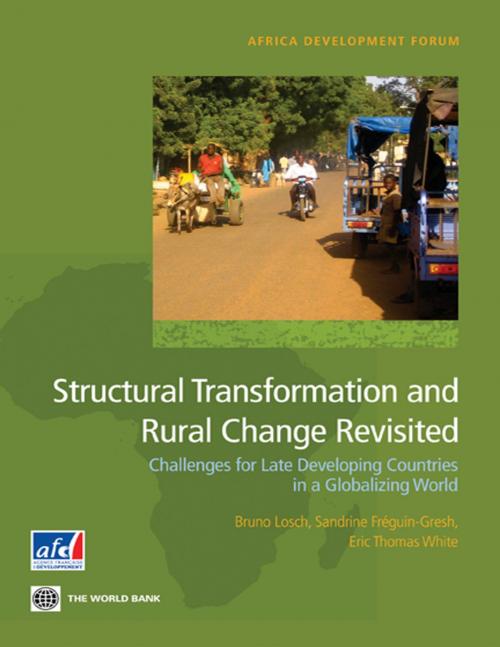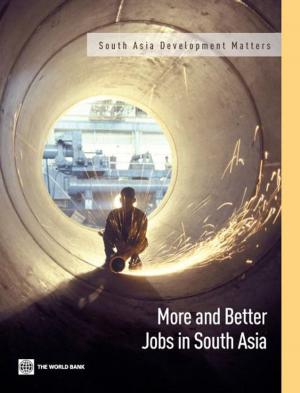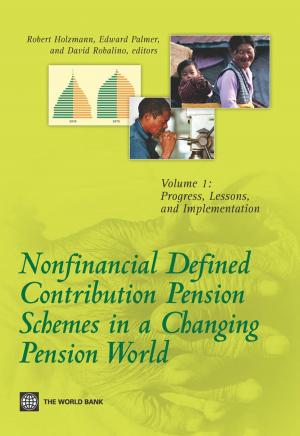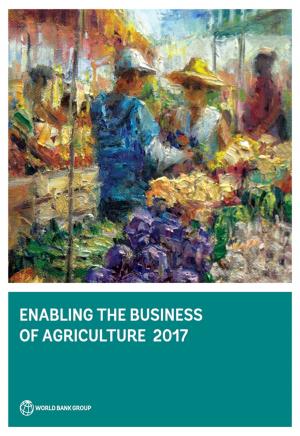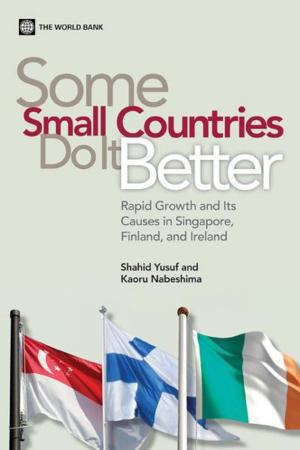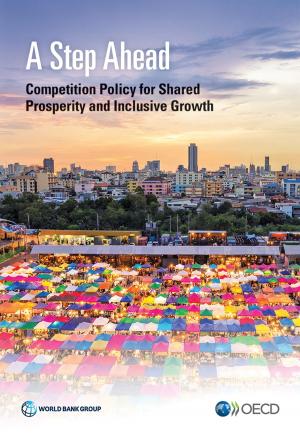Structural Transformation and Rural Change Revisited: Challenges for Late Developing Countries in a Globalizing World
Business & Finance, Economics, Sustainable Development, Macroeconomics, Economic Development| Author: | Bruno Losch, Sandrine Freguin-Gresh, Eric Thomas White | ISBN: | 9780821395134 |
| Publisher: | World Bank Publications | Publication: | June 18, 2012 |
| Imprint: | Language: | English |
| Author: | Bruno Losch, Sandrine Freguin-Gresh, Eric Thomas White |
| ISBN: | 9780821395134 |
| Publisher: | World Bank Publications |
| Publication: | June 18, 2012 |
| Imprint: | |
| Language: | English |
This book makes a compelling case for reintegrating structural issues into agricultural and rural development policies, which have for the last 30 years over-focused on short-term issues. It shows how the liberalization of agriculture in many late developing countries has not in fact led to the development of the vibrant rural non-farm economy so often discussed in the literature. Neither has it led to a large-scale integration of agricultural producers into the global economy. Most producers remain engaged in traditional crops—mainly staples—and in traditional marketing systems characterized by limited contractualization. Yet in spite of these observations the book draws optimistic conclusions: there are a clear set of policy priorities that, if adapted to individual country contexts, can facilitate an enduring and productive rural transformation. The book is based on an in-depth seven-country study that surveyed 8,000 rural households. It specifically focuses on these households’ activity and income structures in an evolving agricultural context marked by liberalization and trends of increasing economic integration. In doing so it reviews the very different levels (and trajectories) of rural diversification among countries at various stages in the structural transformation process. Among late developers, such as the countries of sub-Saharan Africa, a common observation is an incipient economic transition that is accompanied by a strong process of demographic transition. Consequently, growing cohorts of new labor market entrants pose a dramatic challenge. This new demographic structure offers a huge opportunity for growth if it can be accommodated, and if not it represents a serious political and economic liability. If overall economic diversification is the major avenue for change, sustainable growth, and job creation, then it is clear that agriculture and the rural economy will have a critical role to play in the coming two decades. Based on its investigation of existing rural realities, the book suggests several policy orientations. These include a clear need to focus on staples and family agriculture, to engage in targeted development strategies at the regional level, and to pursue a policy of “territorial development” that promotes strong rural-urban linkages at the level of rural localities, towns and districts.
This book makes a compelling case for reintegrating structural issues into agricultural and rural development policies, which have for the last 30 years over-focused on short-term issues. It shows how the liberalization of agriculture in many late developing countries has not in fact led to the development of the vibrant rural non-farm economy so often discussed in the literature. Neither has it led to a large-scale integration of agricultural producers into the global economy. Most producers remain engaged in traditional crops—mainly staples—and in traditional marketing systems characterized by limited contractualization. Yet in spite of these observations the book draws optimistic conclusions: there are a clear set of policy priorities that, if adapted to individual country contexts, can facilitate an enduring and productive rural transformation. The book is based on an in-depth seven-country study that surveyed 8,000 rural households. It specifically focuses on these households’ activity and income structures in an evolving agricultural context marked by liberalization and trends of increasing economic integration. In doing so it reviews the very different levels (and trajectories) of rural diversification among countries at various stages in the structural transformation process. Among late developers, such as the countries of sub-Saharan Africa, a common observation is an incipient economic transition that is accompanied by a strong process of demographic transition. Consequently, growing cohorts of new labor market entrants pose a dramatic challenge. This new demographic structure offers a huge opportunity for growth if it can be accommodated, and if not it represents a serious political and economic liability. If overall economic diversification is the major avenue for change, sustainable growth, and job creation, then it is clear that agriculture and the rural economy will have a critical role to play in the coming two decades. Based on its investigation of existing rural realities, the book suggests several policy orientations. These include a clear need to focus on staples and family agriculture, to engage in targeted development strategies at the regional level, and to pursue a policy of “territorial development” that promotes strong rural-urban linkages at the level of rural localities, towns and districts.
